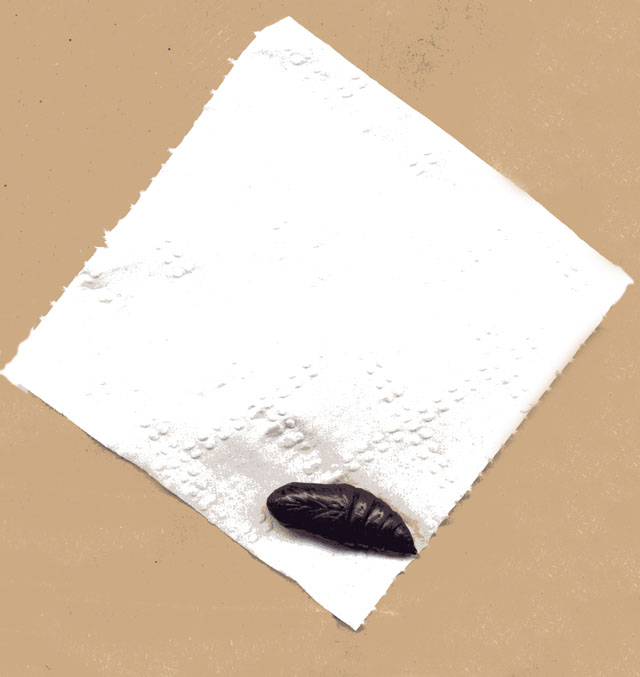
Paonias excaecata pupa ready for wrapping
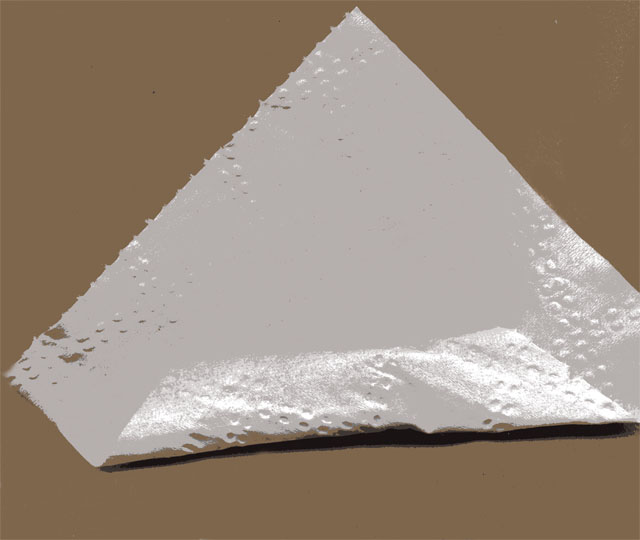
Paonias excaecata pupa partially wrapped
When I ship individual orders for butterflies or Sphingidae or Ceratocampinae pupae, I actually take the time to individually wrap each pupa (except for smaller butterfly pupae which are often deposited between two strips of cotton) in a single sheet of toilet tissue.

Paonias excaecata pupa ready for wrapping

Paonias excaecata pupa partially wrapped
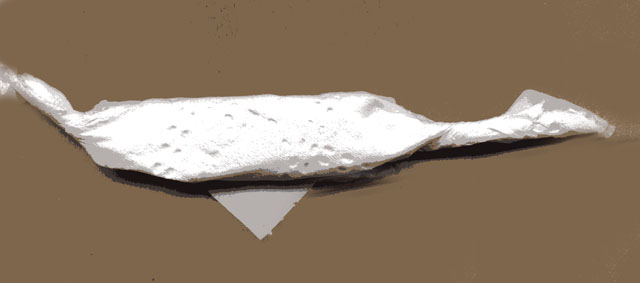
Single Paonias excaecata "wrapped pupa"
Over the years I have received packages that were not treated properly during packing, and pupae sometimes arrive in a damaged state. YOU DEFINITELY DO NOT WANT NAKED PUPAE, OR EVEN COCOONS, TO BE BOUNCING AROUND IN THE SHIPPING BOX DURING TRANSIT.
Avoid situations where you might have large amounts of tissue with many pupae. The weight of the pupae can compact the loose tissue and create room for jostling. In many cases naked pupae will be damaged if they bounce against each other or against inner surfaces of the shipping container. Some pupae have sharp projections on the sides of the pupae (Dryocampa, Anisota) and some have an elongated sharp cremaster (regalis, imperialis).
In early October, 2009, I received a shipment of ten Eacles imperialis pini males in one pack; ten Eacles imperialis pini females in another pack; and approximately fifty loose promethea cocoons, all in the same box. The pini pupae were sexed, individually wrapped in tissue and then group wrapped/packed in a folded sheet of bubble pack, stapled so pupae fit snuggly in each bubble pack "purse". The remaining empty space in the shipping box was filled with additional bubble pack and cotton strips. The pupae and cocoons suffered no damage in transit.
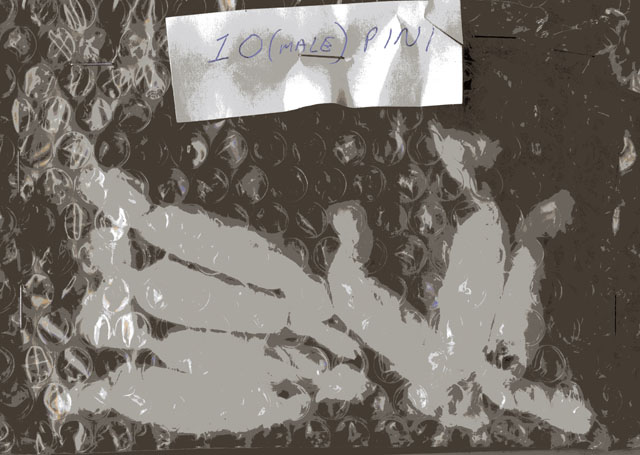
Eacles imperialis pini males (sexed and properly wrapped and packed); three removed for shipping
When I am filling really large orders (hundreds of pupae and cocoons) that contain many "naked pupae" I will often pack several small boxes inside the larger shipping box to give more structure to contents and avoid compaction.
Unfortunately Bonnie received a shipment of naked pupae that were not properly packed. I have included some of the images she forwarded to me. We do not pay for pupae that are dead, damaged or deformed, nor do we reship them to customers.
WLSS members and I are fortunate that Bonnie is very skilled at assessing cocoons and pupae, and she is very proficient with packing. I have not had any problems with damaged pupae since she has been shipping.
During fall of 2009 Bonnie has received and inspected over 3300 pieces from at least a dozen reliable breeders. All items get assessed by her upon receipt and she weeds out anything that is suspect (parasitized, dead, deformed, undersized). On several occasions both of us have sat at her kitchen table assessing stock. We have opened cocoons that seem suspect and usually our suspicions were sustained. Because we are working with experienced breeders who have also been advised as to what to look for, almost all stock received is good.
In most cases Bonnie does not begin receiving livestock until at least mid October; if there were going to be any problems, they would have materialized by then.
Unfortunately we did receive two packages this year that contained naked pupae. In one package their was slight damage due to compaction and pupae were deemed not fit for reshipment. In a second package there was extensive damage due to improper packaging. Loose packing material got compacted, creating empty space in the shipping box, and the weight of the pupae and apparent jostling inside the box resulted in quite a bit of damage.
Most naked pupae were very well packaged and arrived in excellent condition. Even when shipping cocoons, there should not be any empty space inside the packing box. Cocoons should be fitted snugly but not compacted, and bubble pack or styrofoam peanuts or some other suitable packing material should be used to fill empty spaces inside the box. In small boxes, I sometmes use crumpled up newspaper which will not compact from the weight of just a few cocoons. Something more substantial needs to be used as a filler in large boxes where weight of cocoons and/or pupae can cause compaction. Sometimes boxes get dropped or thrown around by postal workers. As long as there is no jostling inside the box, everythign should be fine.
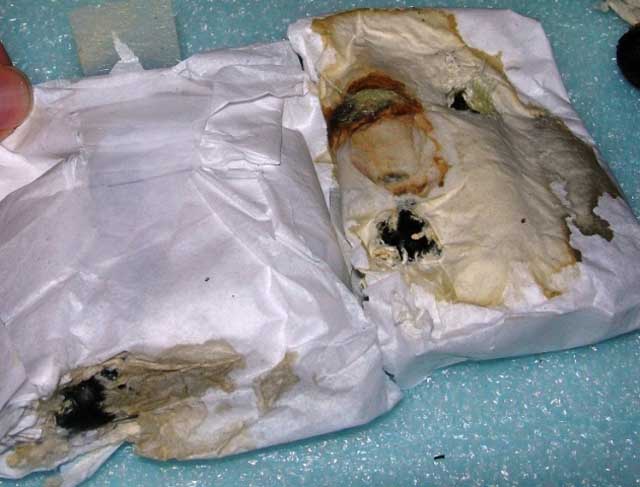
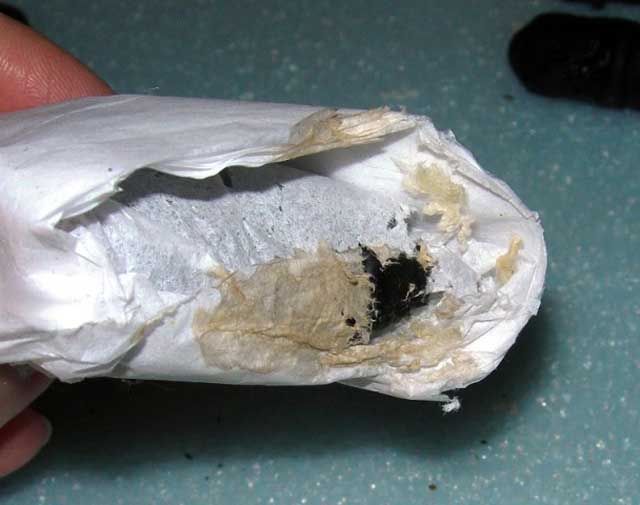
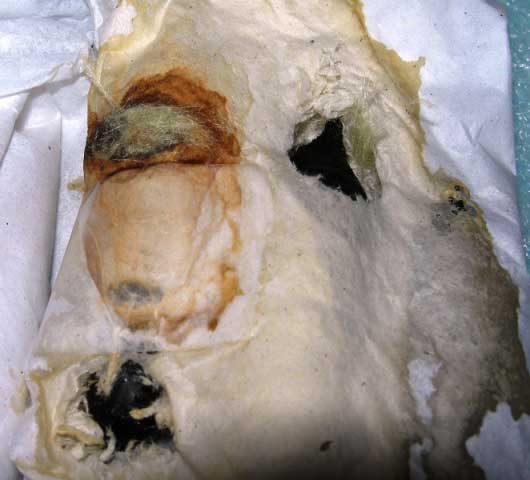
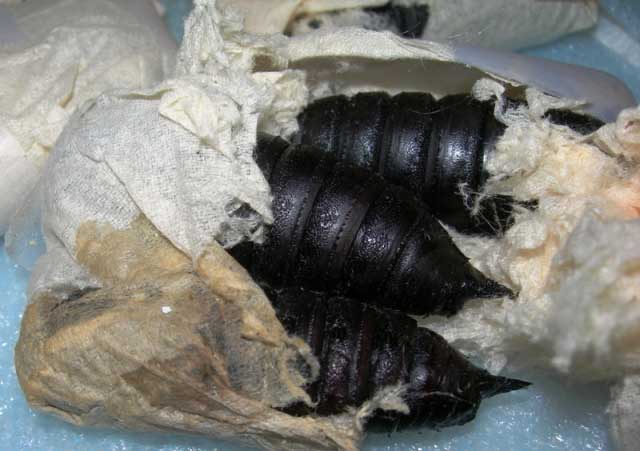
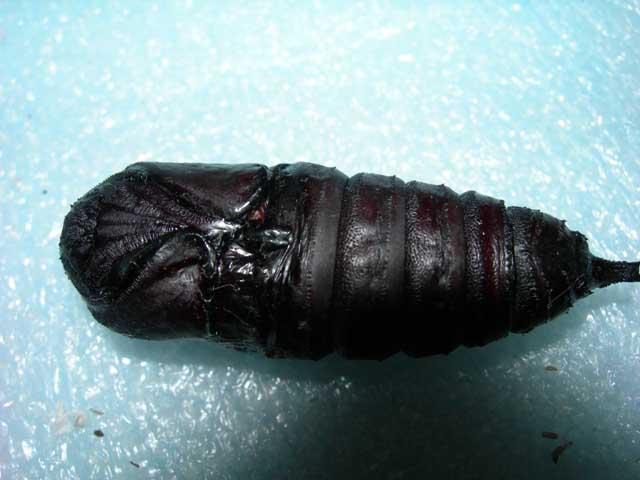
Please do not send deformed pupa. We don't pay for them and will not reship them.
Use your browser "Back" button to return to the previous page.